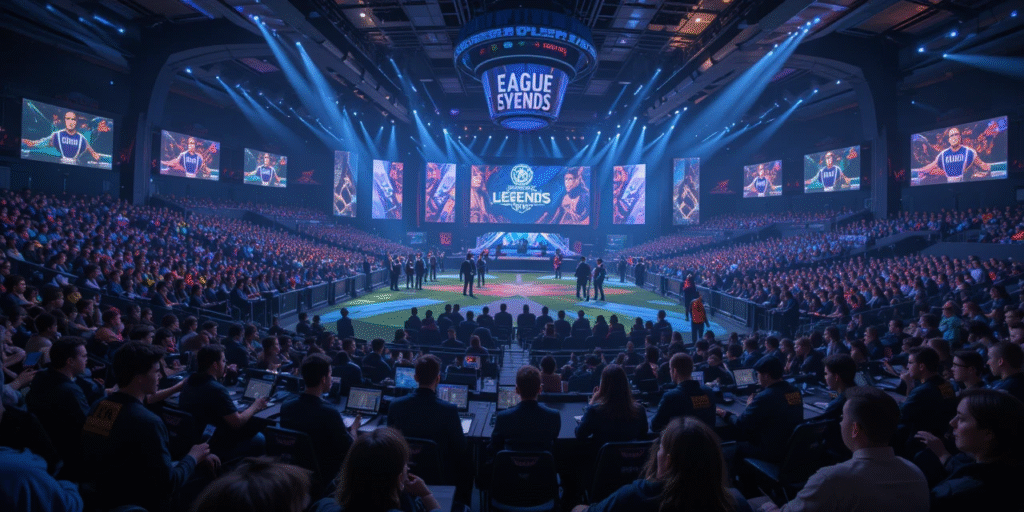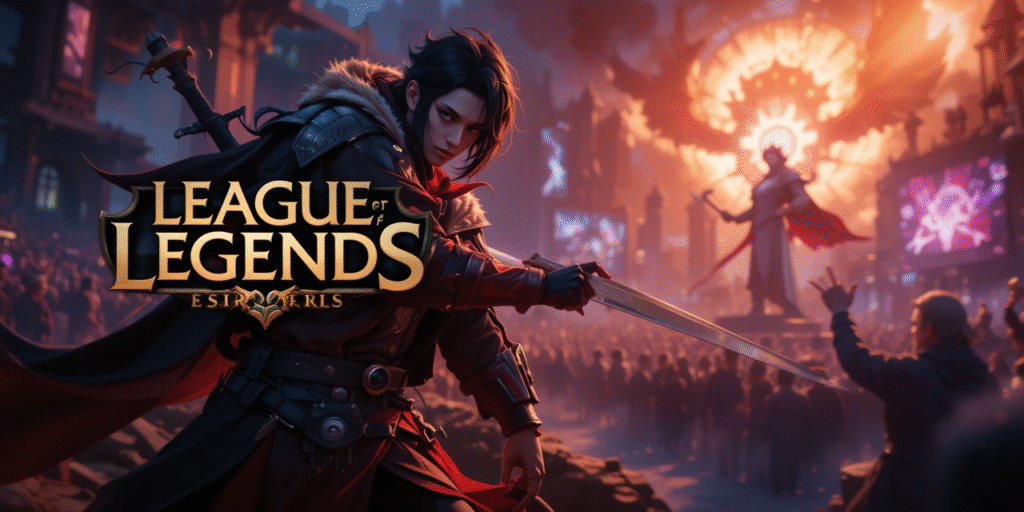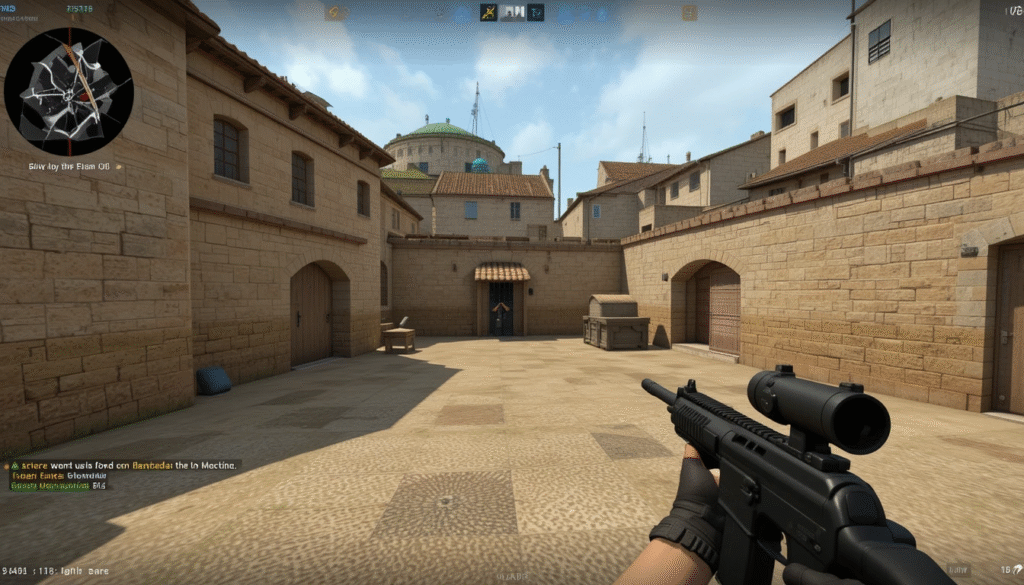One of the most well known and significant competitive gaming scenes worldwide is League of Legends Esports. Constructed around Riot Games’ flagship game League of Legends (LoL), this esports ecosystem has drawn the interest of professional players, sponsors, and millions of fans. League of Legends began as a recreational multiplayer online battle arena (MOBA) game in 2009 and has now grown into a worldwide competitive platform. In terms of size, prize money, and attendance, its competitions currently compete with regular sporting events. League of Legends Esports has turned gaming into a lucrative profession and a global phenomenon thanks to its top-notch production, global leagues, and fervent communities.

League of Legends Esports Ascent
Small competitions hosted by Riot Games and neighborhood organizations marked the beginning of League of Legends Esports. With a $100,000 prize fund and rapid growth, the Season One World Championship in 2011 was the first significant international competition. By establishing regional leagues in North America, Europe, Korea, China, and other places, Riot has developed its esports infrastructure over time. While viewers benefited from regular seasons and plotlines akin to those of traditional sports, athletes had organized competition from these leagues.
These days, the League of Legends Worlds Championship, sometimes known as “Worlds,” draws millions of live viewers and has prize pools worth millions of dollars. The 2023 Worlds alone saw peak viewership of over 6 million, demonstrating that League of Legends Esports is a huge worldwide spectacle in addition to being a form of entertainment.
League of Legends Esports Organization

League of Legends Esports has a very structured and organized professional environment. It has many tiers that guarantee clubs and individuals competition and advancement throughout the year.
Local Leagues
There is a professional league in every major region:
North American League Championship Series (LCS)
European League of Legends Championship (LEC)
South Korea’s League of Legends Champions Korea, or (LCK)
China’s League of Legends Pro League (LPL)
Despite being smaller than the big four, other regions including Brazil, Japan, and Latin America also have competitive leagues.
International Competitions
Major international competitions that unite elite teams are part of the esports calendar:
The most prominent League of Legends Esports competition,
The World Championship (Worlds), takes place every year in October or November.
Relegation and Promotion
Many minor areas still maintain promotion and relegation systems, where clubs compete to earn a berth in the top league, even if the big leagues use franchise models. This gives underdog teams exciting chances to succeed.
League of Legends Esports Top Teams
Legendary organizations and teams that rule the esports industry have emerged from the competitive landscape. Among the most well liked teams are:
T1 (Korea): Previously known as SK Telecom T1, the team has won several world championships under the leadership of legendary player Faker, most often known as the “Unkillable Demon King.”
G2 Esports (Europe): Frequently featured in international competitions, G2 is renowned for its aggressive playstyle and vivacious personality.
Fnatic (Europe): One of the original League of Legends Esports companies, Fnatic took home the inaugural World Championship.
Both RNG (China) and Edward Gaming have won international awards and dominated the LPL.
North American teams Cloud9 and Team Liquid are well known and have devoted fan bases; they frequently compete for NA in Worlds.
Since these teams have amassed millions of followers throughout the globe, League of Legends Esports is as much about branding and community as it is about competition.
League of Legends Esports Players Role
League of Legends Esports revolves around professional players. These people put in endless hours on teamwork, communication, and training. Some sportsmen go on to become celebrities and establish personal brands that are comparable to those of conventional athletics.
Faker (Lee Sang-hyeok): regarded as the all-time great player.
Legendary Chinese ADC Uzi is renowned for his mechanical prowess.
European great Perkz is renowned for his flexibility.
Like players in basketball or football, players’ tales, rivalries, and distinctive playstyles keep viewers interested.
Media and Fan Experience
League of Legends Esports has prospered in part because of its top notch broadcasting. Riot Games makes significant investments in production, including top-notch broadcasts, analysis desks, commentary, and fan-interactive elements.
Fans may experience matches with comprehensive overlays and statistics thanks to the in game spectator app. Platforms like as Twitch and YouTube provide free worldwide access to matches, increasing viewership even further. Worlds and MSI live venues frequently sell out stadiums, resulting in thrilling environments with cosplay events, light displays, and cheering spectators.
effects on the gaming sector
Beyond competitive matches, League of Legends Esports has a significant impact. It possesses:
Bringing gaming into the mainstream media is known as expanded gaming culture.
Increased sponsorship opportunities: Companies like Red Bull, Mercedes Benz, and Mastercard increasingly support teams and competitions.
established professional pathways for coaches, analysts, commentators, content producers, and event planners in addition to athletes.
Driven innovation: Riot influences other esports by creating new technology for fan interaction and broadcasting.
This effect on the whole industry demonstrates how League of Legends Esports has changed how people view gaming globally.
League of Legends Esport Obstacles
League of Legends Esports still has problems in spite of its success:
Player burnout: Short careers are frequently the result of the rigorous schedule and fierce competition.
Regional disparity: Chinese and Korean teams frequently outperform other areas.
Sustainability: Making sure smaller clubs and leagues have enough money.
Game balance: Riot Games frequent upgrades have the potential to change the competitive environment, requiring players to quickly adjust.
These difficulties emphasize how the ecology must constantly evolve.
League of Legends Esports Future
League of Legends Esport appears to have a bright future. Fans may anticipate even more engaging experiences thanks to emerging technologies like augmented reality (AR), improved broadcasting capabilities, and worldwide growth. In order to ensure more worldwide competition, Riot Games also intends to fortify smaller territories.
Furthermore, the emergence of esport as a respectable professional path and the growing participation of international sponsors ensure long-term viability. League of Legends Esports will continue to be at the forefront of innovation as cutting-edge fan interaction technologies, virtual reality, and AI driven analytics become available.
Final Thoughts
The League of Legends Esports is a global movement that combines community, entertainment, and sportsmanship; it is more than simply competitive gaming. It symbolizes the rise of esport as a cultural force, from its modest origins to sold out stadiums and millions of online spectators. League of Legends is still the industry leader in esports thanks to its fervent gamers, iconic teams, and innovative competitions like MSI and Worlds.


